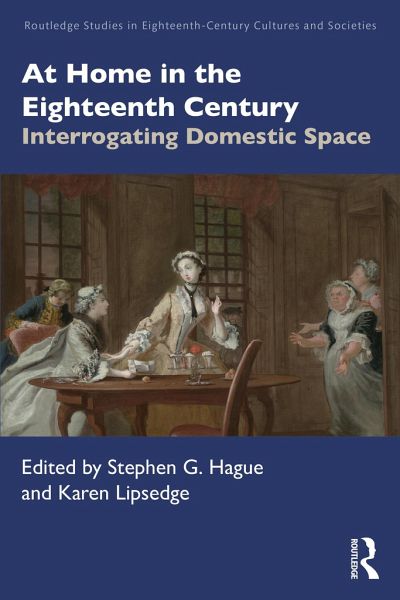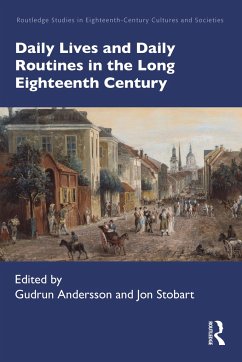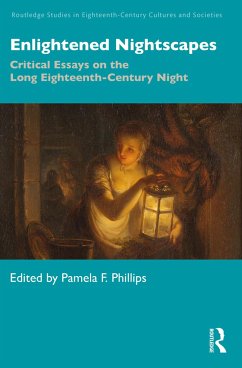
At Home in the Eighteenth Century
Interrogating Domestic Space
Herausgegeben: Hague, Stephen G.; Lipsedge, Karen

PAYBACK Punkte
22 °P sammeln!
The eighteenth-century home, in terms of its structure, design, function, and furnishing, was a site of transformation - of spaces, identities, and practices. Home has myriad meanings, and although the eighteenth century in the common imagination is often associated with taking tea on polished mahogany tables, a far wider world of experience remains to be introduced. At Home in the Eighteenth Century brings together factual and fictive texts and spaces to explore aspects of the typical Georgian home that we think we know from Jane Austen novels and extant country houses while also engaging wit...
The eighteenth-century home, in terms of its structure, design, function, and furnishing, was a site of transformation - of spaces, identities, and practices. Home has myriad meanings, and although the eighteenth century in the common imagination is often associated with taking tea on polished mahogany tables, a far wider world of experience remains to be introduced. At Home in the Eighteenth Century brings together factual and fictive texts and spaces to explore aspects of the typical Georgian home that we think we know from Jane Austen novels and extant country houses while also engaging with uncharacteristic and underappreciated aspects of the home. At the core of the volume is the claim that exploring eighteenth-century domesticity from a range of disciplinary vantage points can yield original and interesting questions, as well as reveal new answers. Contributions from the fields of literature, history, archaeology, art history, heritage studies, and material culture brings the home more sharply into focus. In this way At Home in the Eighteenth Century reveals a more nuanced and fluid concept of the eighteenth-century home and becomes a steppingstone to greater understanding of domestic space for undergraduate level and beyond.














